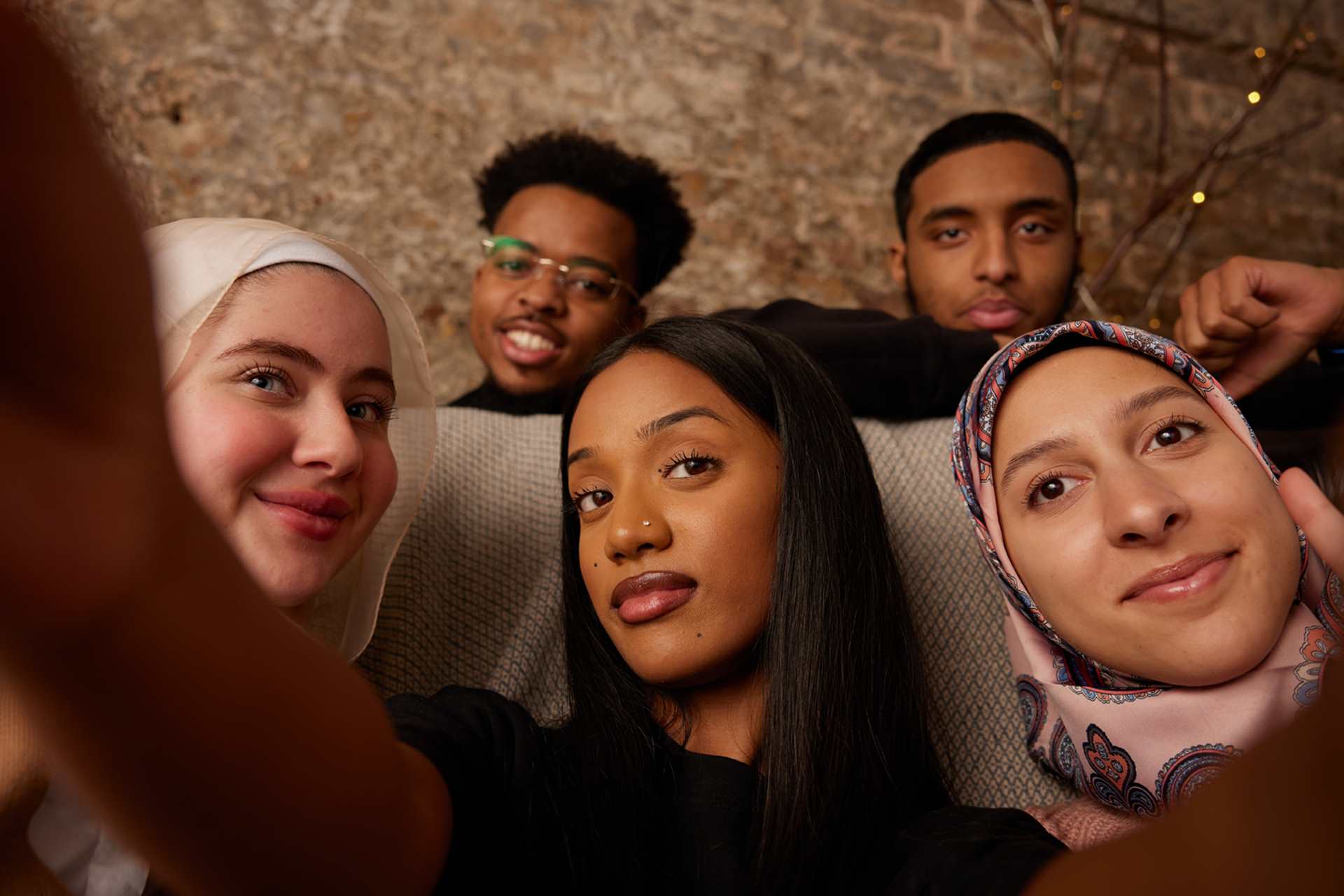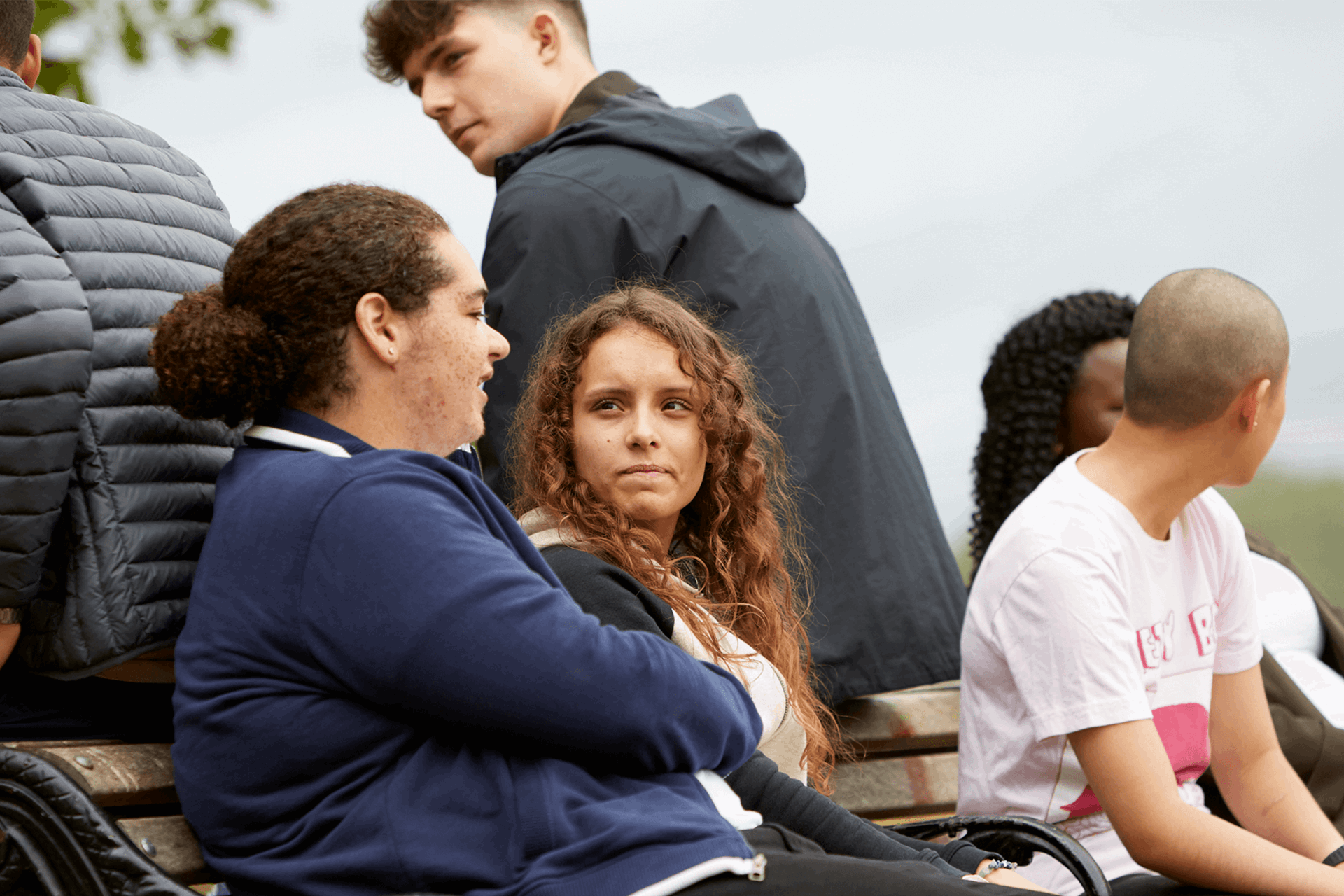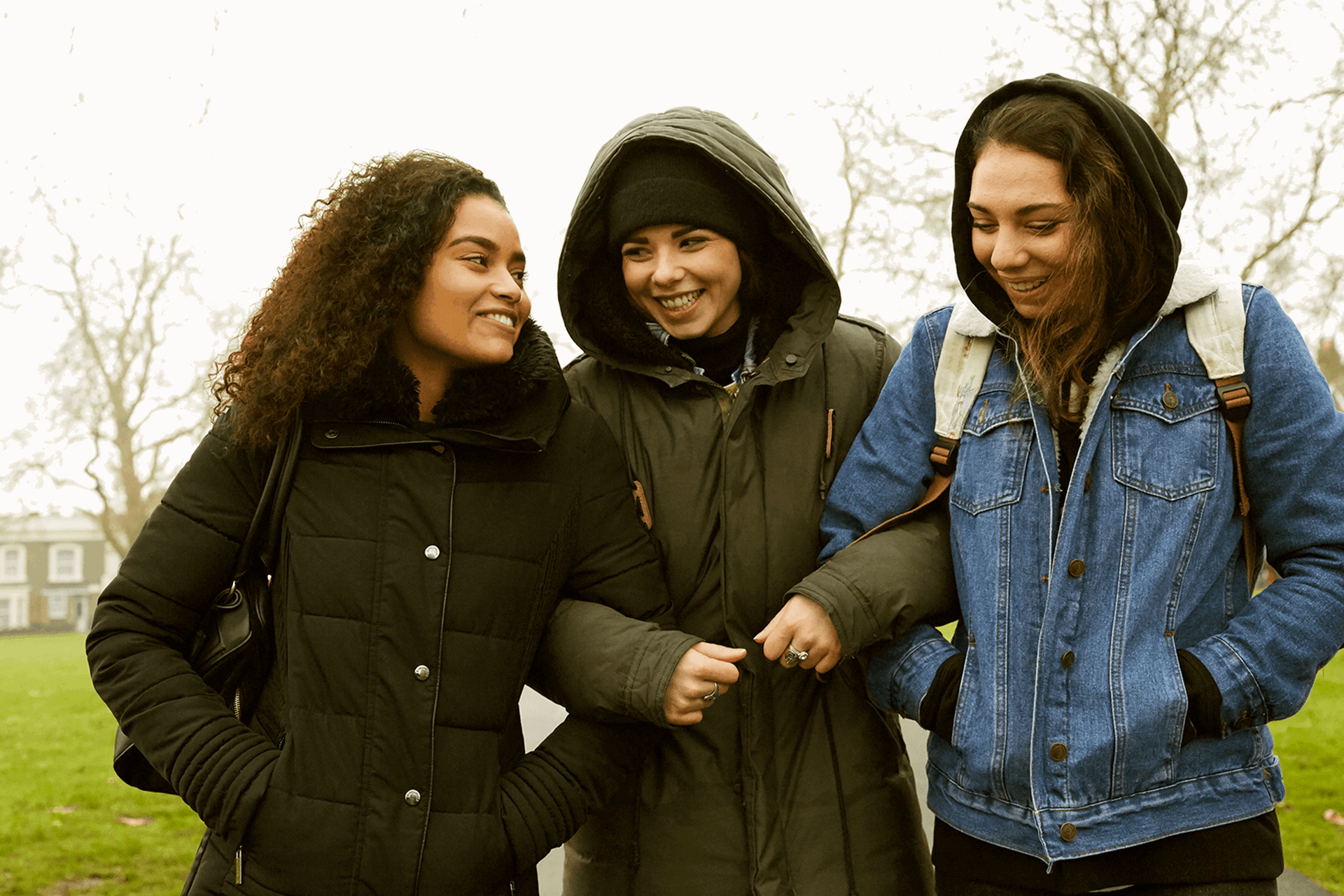Topics mentioned: body dysmorphic disorder (BDD), eating problems, self-esteem
About: Molly, 18, has struggled with body dysmorphia from a young age. Here she explains her story and the power she's found in mantras to help her cope.
Body dysmorphic disorder (BDD), or body dysmorphia, is a complex yet treatable condition. I developed body dysmorphia with my eating disorder at age 13, but not everyone with BDD experiences eating disorders. It looks different for everyone, and people can have it to different degrees – there’s no one-size-fits-all approach to how someone can recover from it or deal with it. BDD doesn’t discriminate and it can affect anyone, but especially teenage girls and young women.
For me, I used to feel trapped in my body, and how I felt about how I looked would dictate my entire mood. Despite having been in anorexia recovery for years now, and having pushed through the worst of it, I can still struggle with body dysmorphia. Originally, I felt frustrated by this and couldn’t work out why it was still lingering on, and then I discovered a correlation that changed my perspective completely.
For me, I used to feel trapped in my body, and how I felt about how I looked would dictate my entire mood.
I noticed that when I was in periods of stress, such as taking exams, my focus began to shift towards my body. This meant that any negative emotions I was experiencing were directed at my body. I’d begin avoiding reflections of myself, had negative thoughts about the way my body looked, and my self-worth began to decline. I wouldn’t wear skirts or tighter items of clothing, but instead baggy jeans and jumpers. Focusing on how I thought my body looked was a way to shift my focus away from stress, and onto something else as a distraction.
Unfortunately, BDD is incredibly convincing – it literally warps your perception of how you look. I spent around four years thinking I was ‘too big’, and I wasn’t seeing myself correctly. Even though the number on the scale was dropping, my body dysmorphia got worse as my weight got lower. But now I understand that this isn’t surprising. As I lost weight, my life became more and more stressful. I was taken out of school, missing my friends, going through medical intervention – all these things were incredibly stressful.
There are days when I still feel uncomfortable in my skin, but when I experience a hyper fixation on how I look, I now see it as a warning sign. There’s a stress or worry elsewhere in my life that I need to address. I think to myself ‘right, my attention is back on my physical appearance again, so what is going on in my life that I am trying to avoid or numb?’ Then, once I’ve identified the issue and dealt with it, the uncomfortable feelings about my body subside.
The power of mantras
I believe that mantras are incredibly powerful. I recommend writing them down, such as ‘I’m more than a number on the scale’ or ‘my body does not determine my worth’ using a colourful pen on a sticky note and stick it somewhere obvious, like your mirror, wardrobe, phone case – anywhere you’ll see it! Here are some mantras I’ve used to help me cope with BDD.
-
Be kind to yourself like you would a friend
Try to remember that in reality, no one cares about how your body looks, and if they do and have something negative to say, then they’re not worth your time.
-
All bodies are beautiful
There are so many variations of what ‘healthy’ looks like. This is personal to each of us, and a BMI chart or clothing size cannot dictate this.
-
Challenge negative thoughts and habits
Sometimes we can’t control when the periods of body dissatisfaction hit, and that’s okay. What’s important is how you react. For example, I’ll ask myself, ‘what can I do to show my body some kindness instead?’ Remember, you don’t need to love your body to respect it.
BDD is something that takes time and effort to address, and requires a shift in mindset, which doesn’t happen overnight! Some days this can be hard, and that’s totally okay, recovering from body dysmorphia isn’t linear. Your body is never the issue – only your perception of it, which you have the power to change.
Your body is never the issue – only your perception of it, which you have the power to change.
More information and advice
We have tips and advice to help you find the support you need. Take a look at our guides.
Where to get help
However you're feeling, there are people who can help you if you are struggling. Here are some services that can support you.
-
Childline
If you’re under 19 you can confidentially call, chat online or email about any problem big or small.
Sign up for a free Childline locker (real name or email address not needed) to use their free 1-2-1 counsellor chat and email support service.
Can provide a BSL interpreter if you are deaf or hearing-impaired.
Hosts online message boards where you can share your experiences, have fun and get support from other young people in similar situations.
- Opening times:
- 24/7
-
Beat
Offers information and support for anybody affected by eating disorders.
One-to-one web chat available. They also run a range of online support groups, which are all fully moderated and anonymous.
Enter your postcode in the HelpFinder to see what eating disorder support is available in your area.
View their information on helpline accessibility and confidentiality.
- Opening times:
- 365 days a year - weekdays (9am - 8pm); weekends (4pm - 8pm)






